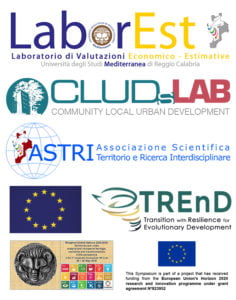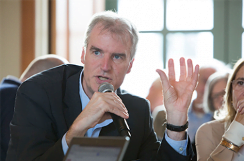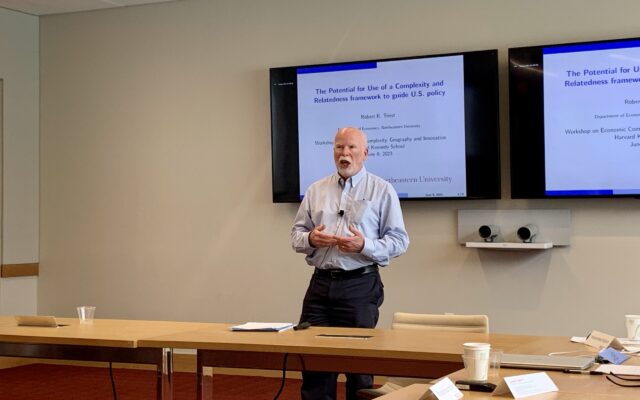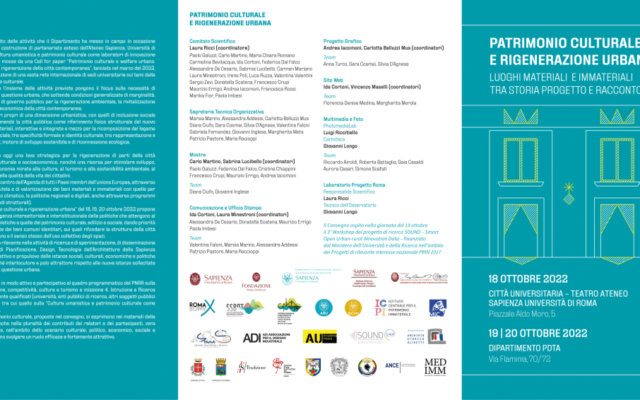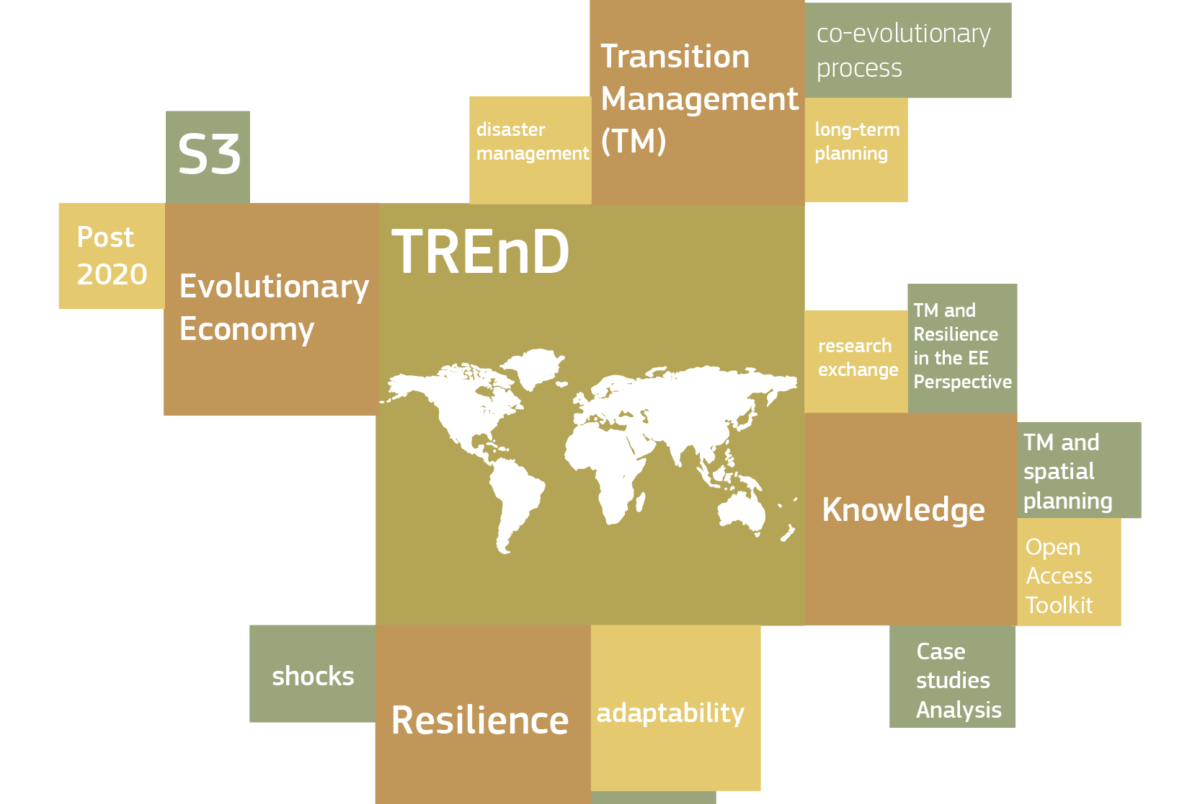
Reggio Calabria, IT – 26 May 2020
TREnD International Open Panel Discussion – New Metropolitan Perspectives 2020 – Opening Event
Equity in Diversity – inclusion in complexity: Knowledge complexity, inclusiveness and sustainability: Towards a transition agenda for Cohesion Policy
How to combine Smart, Inclusive and Green Growth. Towards a Transition Agenda for Cohesion Policy
Ron Boschma, Utrecht University
Rethinking Europe: challenges and transformations
Sergio Fabbrini, LUISS University, Harvard University – Kennedy School of Government
The debate: Technological resilience and inequalities dynamics, Can knowledge complexity generate inequalities? New trends for peripheral areas
Since the 1980s, the European Union has pursued the overall objective to strengthen the economic and social cohesion to reduce disparities among more and less developed regions through the Cohesion Policy. The introduction of Smart Specialisation Strategies (S3) in the Cohesion Policy agenda for the programming period 2014-2020 was aimed at the reduction of disparities by exploiting local assets and potentials through a strongly-oriented research and innovation agenda in line with Europe Strategy 2020. However, inequalities have become a growing phenomenon affecting advanced and lagging regions. According to a recent study on regional inequalities in Europe, delivered by European Parliamentary Research Service, “while aggregate disparities between the Member States are decreasing, there seems to be a growing spatial disconnect, with some regions growing dynamically and others stagnating or falling behind”. Moreover, the presence of the so-called “inner peripheries” in almost all European countries claims for a more inclusive and sustainable approach in the “transitional” phase towards the 2021-2027 Cohesion Policy. There is a common agreement that the rising of inequalities is urged mainly by technological change, disruption of organized labor and globalization, with the decline of the middle class and lower taxes on capital. The inequalities generated by knowledge and innovation dynamics, following the global market powers, are bringing both advanced and less developed areas to revise their development strategies improving their ability to respond to the shocks they are more frequently facing. Such a resilience-based process rests on the identification of the key vulnerability factors, to manage the transition phase claimed for more inclusive and sustainable development of EU regions.
The TREnD project proposes an integrated approach based on an evolutionary perspective in recognizing that the dynamic process, thanks to innovation and knowledge, defines different equilibrium paths that may be rather explained by the territorial response. The TREnD Project main objective is to stimulate the regional diversification to be seen more as a co-creation of solutions and concepts on development problems through. enhancing the resilient capacity of regions; applying a transitional approach to tailored placed-based innovation policies. The approach moves from the general question of how strengthening the regional capabilities in triggering, implementing and managing Transition strategies towards driving “resilience-building” processes.
Keynotes Bio
Ron Boschma – Utrecht University
Ron Boschma is Full Professor in Regional Economics at the Department of Human Geography and Planning at the Faculty of Geosciences, University of Utrecht. He is also Professor 2 at UiS Business School of Stavanger University, Norway since 2017. In the period 2013-2015, Boschma has been director of the Centre for Innovation, Research and Competence in the Learning Economy (CIRCLE) at Lund University. Boschma has published in international journals on Evolutionary Economic Geography, the spatial evolution of industries, geography of innovation, regional resilience, the structure and evolution of spatial networks, agglomeration externalities, and regional diversification. He has been one of the founders of Evolutionary Economic Geography, a new and expanding stream in Economic Geography. Boschma is member of Scientific Advisory group for European Commission DG Urban and Regional Policy, 2018-2020, member of the Board of the International Regional Studies Association since 2015, and he has been member of the Research, Innovation and Science Experts (RISE) High-Level Advisory Body to European Commissioner Carlos Moedas in the period 2015-2016. Boschma was ranked by Thomson Reuters among the top 1% of cited researchers worldwide in all scientific fields in 2014-2019.
Sergio Fabbrini – LUISS University, Harvard University Kennedy School of Government
Sergio Fabbrini is currently Professor of Political Science and International Relations and Dean of the Political Science Department at the Luiss Guido Carli in Rome. He is currently the Pirre Keller Visiting Professor at the Harvard Kennedy School of Government. He founded and directed the Luiss School of Government from 2009 to 2018. He served as Director of the Trento School of International Studies in the period 2006-2009 and Editor of the “Italian Journal of Political Science” in the period 2004-2009, the first Editor after Giovanni Sartori who founded it. He was Recurrent Visiting Professor of Comparative and International Politics at the Department of Political Science and Institute of Governmental Studies, University of California at Berkeley; Jemolo Fellow at the Nuffield College, Oxford University; Jean Monnet Chair Professor at the Robert Schuman Center for Advanced Studies, European University Institute in Florence and Visiting Professor in the Department of Political and Social Sciences, European University Institute in Florence; Fulbright Scholar at the Department of Government, Harvard University. He lectured, among others, in Canada (Carlton University), in Mexico (El Colegio de México, Mexico City), in Argentina (Universitad de Buenos Aires and Universitad Abierta Interamericana), in Ecuador (Quito Simon Bolivar University), in China (Nanjing University), in Japan (Osaka University, Tokyo Imperial University and Sapporo University), in Thailand (Chulalongkorn University, Bangkok), in the Philippines (University of Philippines-Diliman, Manila) and in several European universities. He won the 2011 “Capalbio Prize for Europe”, the 2009 “Filippo Burzio Prize for the Political Sciences” and the 2006 “Amalfi European Prize for the Social Sciences”. He was member of the Steering Committee of the European Consortium for Political Research (ECPR) Standing Group on European Union. He published ninenteen books, two co-authored books and twenty edited or co-edited books or journals’ special issues, and several hundred scientific articles and essays in seven languages in the most important peer-reviewed international journals. His publications in English include: Europe’s Future: Decoupling and Reforming, Cambridge, Cambridge University Press, 2019; Which European Union? Europe After the Euro Crisis, Cambridge, Cambridge University Press, 2015;Compound Democracies: Why the United States and Europe Are Becoming Similar, Oxford, Oxford University Press, 2010 (second and revised edition); America and Its Critics: Vices and Virtues of the Democratic Hyperpower, Cambridge, Polity Press, 2008; Italy in the European Union. Redefining National Interest in a Compound Polity (with Simona Piattoni, eds.), Lanham, Md, Rowman and Littlefield, 2007; The United States Contested. American Unilateralism and European Dissent (ed.), London, Routledge, 2006; Federalism and Democracy in the European Union and the United States. Exploring Post-National Governance (ed.), London, Routledge, 2005; Italy Between Europeanization and Domestic Politics (with V. Della Sala, eds), New York, N.Y. Oxford, Berghahn, 2004. He is political editor for the Italian financial daily Il Sole 24 Ore. He received the 2017 Spinelli Prize for his editorials.
